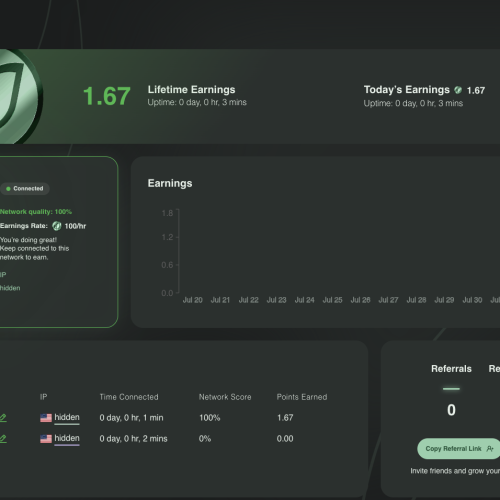In the digital age, financial services are more accessible than ever before. Banks and other physical institutions no longer have a monopoly on money transfers, savings deposits, investments, and loan approval. Nowadays, you can conduct a variety of financial transactions without even leaving your house! But how exactly is this done? The answer lies in the article below!

Table of Contents
Overview of Non-Banking Financial Services
Non-banking financial services refer to a sector of the financial industry that covers a wide range of financial products and services that are not offered by traditional banks. This could be anything from insurance services to investment advisory services to payment services like mobile money. As the industry continues to diversify, the introduction of the Payment Service Provider or PSP license has allowed non-banking financial service providers to expand their operations and make financial services easily accessible to consumers. With this license, PSPs can handle electronic transactions, issue e-money, and carry out foreign exchange services. Through the introduction of the PSP license, non-banking financial service providers continue to play a vital role in promoting financial inclusion and innovation in the financial sector.
How to Transfer Money Without a Bank
In today’s world, traditional banking may not always be the best option for those looking to transfer money. Fortunately, there are other methods available, including:
- Mobile Money: With mobile money, you can send or receive money from your phone. All you need is a smartphone and an account with a service like M-Pesa or Airtel Money.
- Online Payment Services: Many online payment services offer the ability to transfer money without using a bank. Popular services include PayPal, Google Pay, Apple Pay, and Venmo.
- Money Transfer Services: Companies such as Western Union, MoneyGram, and Ria offer money transfer services that allow you to receive or send money without a bank account.
Investing Outside of the Typical Banking System
Investing outside of the typical banking system might seem daunting for some, but it opens up a world of opportunities for those willing to take the risk. There are numerous alternative investment options available, like real estate, peer-to-peer lending, and cryptocurrency, that can provide diversification to your investment portfolio.
When investing outside of the banking system, it’s important to do your research and understand the risks involved. You should look for an investment platform that is regulated and secure, and be aware of any fees associated with the service. Create a diversified portfolio so that you are not overly exposed to any particular asset class or market sector.
Digital Payment Platforms for Global Money Transfers
Digital payment platforms are revolutionizing the way we transfer money internationally. With the click of a button, money can now be sent seamlessly across borders to loved ones, business partners, and organizations alike.
Popular platforms like TransferWise and WorldRemit allow you to transfer money instantly with minimal fees. These services are often cheaper than those offered by traditional banks, as they offer competitive exchange rates and low transaction fees. In addition, payments are typically sent in local currencies so that the recipient does not have to worry about any currency conversion charges.
Advantages of Non-Banking Financial Services
The introduction of non-banking financial services has opened up a world of possibilities for those looking to transfer money, invest, and get access to credit. Here are the biggest advantages of using non-banking financial services:
Accessibility
Non-banking financial services are available to people from all walks of life, regardless of their socio-economic background. This has made it possible for more people to access financial services, thereby reducing the number of unbanked individuals around the world.
Lower Fees
Non-banking financial service providers often charge lower fees than those offered by traditional banks, making them more affordable for the average consumer.
Speed
Services like mobile money and digital payment platforms offer faster transaction times compared to traditional banking services. This makes it easier and more convenient to transfer money quickly and securely without having to go through a lengthy process.
Disadvantages of Non-Banking Financial Services
Although non-banking financial services offer many benefits, there are also some potential drawbacks you should be aware of.
Lack of Regulation
Non-banking financial service providers may not be subject to the same regulations as traditional banks, meaning that consumers may have less protection in case something goes wrong.
Lower Security Standards
The security standards of some non-banking financial services can be lower than those offered by traditional banks, and this could put your money at risk. It’s important to research the security measures employed by any service you are considering.
Limited Scope of Services
Non-banking financial services may not offer all the features and products available from a traditional bank. If you’re looking for certain services, like insurance or savings accounts, you may need to look elsewhere.

Non-banking financial services have opened up a world of possibilities for those looking to transfer money, invest, and access credit without relying on traditional banking methods. While these services offer many advantages, they also come with some risks that consumers should be aware of. By understanding the pros and cons of non-banking financial services, you can make an informed decision and choose the best option for your needs.
- About the Author
- Latest Posts
Whether she is researching the latest trends in home decor, life-changing destination getaways, or the best way to maintain your finances, Dewey takes pride in leaving no stone unturned. She is passionate about distilling and delivering high-quality information that you can use to upgrade your life.




